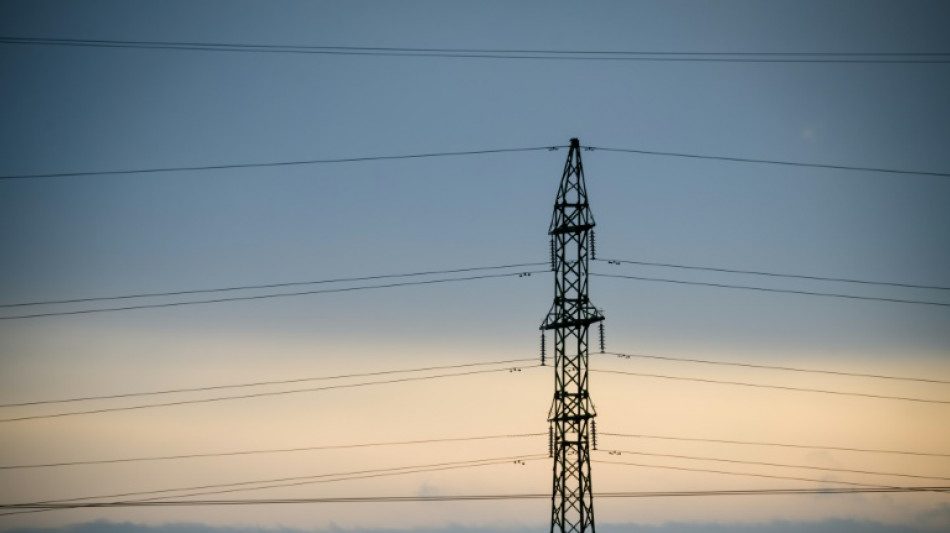
-
 The reluctant fame of Gazan photojournalist Motaz Azaiza
The reluctant fame of Gazan photojournalist Motaz Azaiza
-
Global cocaine market hit new record highs: UNODC
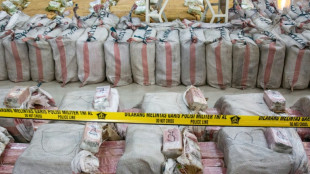
-
 Environment fears over $6 bn Indonesia EV battery project: NGOs
Environment fears over $6 bn Indonesia EV battery project: NGOs
-
Dinusha shines on debut as Sri Lanka bowl out Bangladesh for 247

-
 Migrant money from Russia a lifeline for Central Asia
Migrant money from Russia a lifeline for Central Asia
-
Nigerian farms battle traffic, developers in downtown Abuja
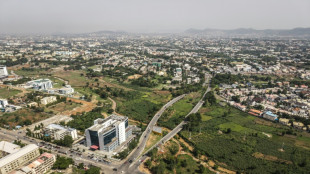
-
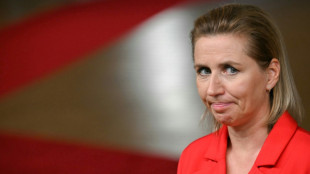 Denmark to push for stricter EU migration policies
Denmark to push for stricter EU migration policies
-
Nearly one-third of Pacific nation Tuvalu seeks Australian climate visa
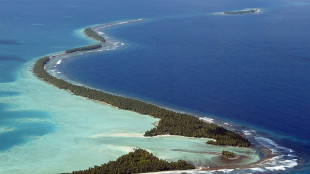
-
 White leads six Wallabies in Force side to face Lions, but no Beale
White leads six Wallabies in Force side to face Lions, but no Beale
-
Thai cannabis stores fret as government moves to tighten rules on sales

-
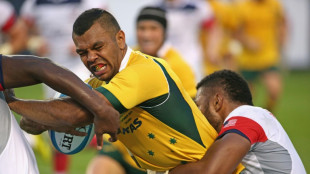 Beale to spearhead First Nations and Pasifika side against Lions
Beale to spearhead First Nations and Pasifika side against Lions
-
Wimbledon: England's garden Grand Slam

-
 Matcha: the Japanese tea taking over the world
Matcha: the Japanese tea taking over the world
-
Inter Milan, Monterrey join Dortmund in Club World Cup last 16

-
 Trail Blazers pick China's Yang in NBA draft first-round surprise
Trail Blazers pick China's Yang in NBA draft first-round surprise
-
Global matcha 'obsession' drinks Japan tea farms dry

-
 US judge sides with Meta in AI training copyright case
US judge sides with Meta in AI training copyright case
-
'Battle of Seattle' as Inter down nine-man River to advance

-
 China hosts Iranian, Russian defence ministers against backdrop of 'momentous change'
China hosts Iranian, Russian defence ministers against backdrop of 'momentous change'
-
Stocks down with eyes on Mideast, dollar hit by Trump Fed comment

-
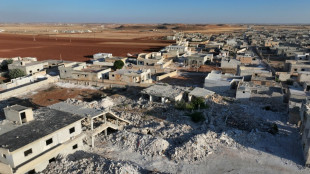 Syrian architect uses drone footage to help rebuild hometown
Syrian architect uses drone footage to help rebuild hometown
-
Verstappen hoping upgrades can boost title defence at Red Bull home race
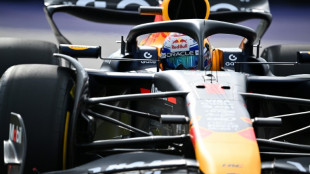
-
 After 'Dune,' Denis Villeneuve to helm next James Bond film
After 'Dune,' Denis Villeneuve to helm next James Bond film
-
Thailand makes new proposal to restrict cannabis sales

-
 Ecuador's most-wanted gang leader 'Fito' captured
Ecuador's most-wanted gang leader 'Fito' captured
-
Tunisia U-turn on phosphate plant sparks anger in blighted city

-
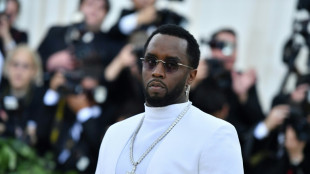 Trial of Sean 'Diddy' Combs heads into closing arguments
Trial of Sean 'Diddy' Combs heads into closing arguments
-
Wallabies release Reds pair Faessler and Paisami for Lions clash

-
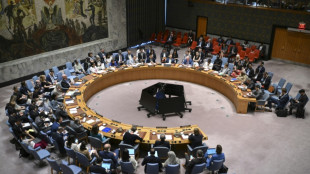 UN Charter: a founding document violated and ignored
UN Charter: a founding document violated and ignored
-
Vinicius, Mbappe have to defend: Real Madrid's Alonso

-
 US teen Cooper Flagg chosen by Mavericks with top pick in NBA draft
US teen Cooper Flagg chosen by Mavericks with top pick in NBA draft
-
Guardiola says City must be ready to 'suffer' in Orlando heat

-
 NBA studying uptick of Achilles injuries - Silver
NBA studying uptick of Achilles injuries - Silver
-
On Its Centennial: The Occasion of Replacing the Kiswa of the Noble Kaaba Embodies the Kingdom of Saudi Arabia's Enduring Care for the Two Holy Mosques

-
 Pacquiao 'hungry' for comeback after four-year layoff
Pacquiao 'hungry' for comeback after four-year layoff
-
'Job done': Sundowns coach proud despite Club World Cup exit
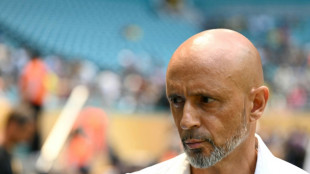
-
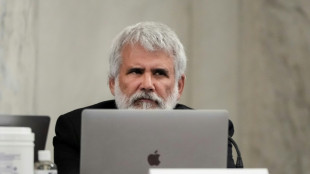 RFK Jr vaccine panel targets childhood vaccinations in first meeting
RFK Jr vaccine panel targets childhood vaccinations in first meeting
-
Tech giants' net zero goals verging on fantasy: researchers

-
 Australia quicks hit back after strong West Indies bowling effort
Australia quicks hit back after strong West Indies bowling effort
-
Dortmund through to Club World Cup last 16, Fluminense deny Sundowns

-
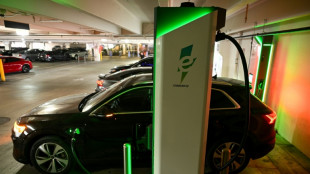 Judge orders Trump admin to release billions in EV charging funds
Judge orders Trump admin to release billions in EV charging funds
-
Sale of NBA's $10 bn Lakers expected to close this year

-
 US Fed proposes easing key banking rule
US Fed proposes easing key banking rule
-
Nvidia hits fresh record while global stocks are mixed
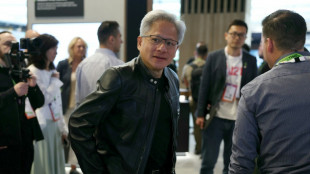
-
 Elliott-inspired England to play Germany in Under-21 Euros final
Elliott-inspired England to play Germany in Under-21 Euros final
-
Gunmen kill 11 in crime-hit Mexican city
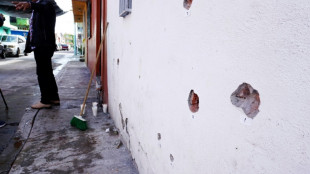
-
 Mbappe absent from Real Madrid squad for Salzburg Club World Cup clash
Mbappe absent from Real Madrid squad for Salzburg Club World Cup clash
-
Sainz opts out of race for FIA presidency

-
 Shamar Joseph rips through Australia top order in first Test
Shamar Joseph rips through Australia top order in first Test
-
Court rejects EDF complaint over Czech nuclear tender


Baltics disconnect from Russian power grid without incident
The three Baltic states on Saturday seamlessly cut ties with Russia's power grid to integrate with the European Union's network, a switch that gained urgency with Moscow's invasion of Ukraine.
Estonia, Latvia and Lithuania -- small EU and NATO members once part of the Soviet Union -- had planned the change for years but sped up the process after Russia's full-scale Ukraine invasion.
The war launched in February 2022 triggered fear in the Baltics that they could be targeted next. The staunch Ukraine supporters also worried that Russia would blackmail them using the electricity system.
"We are safe because we have disconnected from the Russian grid," Nerijus Cesiulis, mayor of the southern Lithuanian city of Alytus, told AFP.
He added it was important to avoid a repeat of incidents "like those in the Baltic Sea", where several undersea telecom and power cables have been severed in recent months.
Some experts and politicians have accused Russia of waging a "hybrid war", including unconventional targeting of energy supplies, an allegation Moscow denies.
Authorities had warned of the potential for sabotage or other disruptions linked to the grid switch, but the disconnection went off without a hitch.
Baltic grid operators said Russia had cooperated during the disconnection process.
The European Commissioner for Energy, Dan Jorgensen, said it was "a historic day".
"I like the light better when there's no Russian electrons involved," he told reporters in Estonian capital Tallinn.
"This is about security... No European country should be dependent on Russia for anything," he added.
Ukrainian Energy Minister German Galushchenko also hailed the disconnection as a "significant event for the whole of Europe".
"Such steps deprive the aggressor of the opportunity to use the electricity sector for blackmail and political games," he said Saturday.
- Mostly EU-funded -
After the Baltic states completed the disconnection process on Saturday morning, Latvia physically cut a power line to Russia.
"Now we have complete control over our power grid," Latvian Energy Minister Kaspars Melnis told reporters while holding a piece of dismantled wire.
His Lithuanian counterpart Zygimantas Vaiciunas told AFP they had eliminated any potential for Russia to use grid control "as a weapon".
Vaiciunas said the Baltics were now operating in so-called "isolated mode" before they integrate with the European grid via Poland on Sunday.
The window of time was so they could run tests to assure Europe their energy system was stable, Lithuanian state-run grid operator Litgrid said.
It added on Saturday evening it had completed all "frequency control tests" and everything was progressing as planned.
A total of 1.6 billion euros ($1.7 billion) -- mostly EU funds -- have been invested in the synchronisation project across the Baltic states and Poland.
European Commission chief Ursula von der Leyen was to attend a ceremony with Baltic leaders in Vilnius on Sunday.
- 'Symbolic' -
Lithuanian engineer Aras Valiukas, 45, was happy about the grid switch, calling it "symbolic".
"We have disconnected from the Soviet Union," he told AFP in downtown Vilnius.
The Baltics have long prepared to integrate with the European grid but faced technological and financial issues.
They stopped purchasing Russian gas and electricity after the invasion but their power grids remained connected to Russia and Belarus, controlled from Moscow.
This left them dependent on Moscow for a stable electricity flow, which is crucial for factories and facilities requiring a reliable power supply.
Litgrid and Latvian grid operator AST said Russia had cooperated with Saturday's switch.
"They disconnected power to the same line also from their side, with the biggest surprise today being that there are no surprises," AST CEO Rolands Irklis told AFP.
Litgrid head Rokas Masiulis said that "when you are part of the same (electricity) system, you cannot harm the other without harming yourself".
Masiulis said Russia had to ensure the energy security of the Russian exclave of Kaliningrad, "which was in part dependent on us".
The exclave is located between Lithuania and Poland and has no border with the rest of Russia.
Because of the Baltic decoupling, the energy system in Kaliningrad will no longer have grid connection to mainland Russia.
Kaliningrad has been building up its power generation capacity for years and Kremlin spokesman Dmitry Peskov dismissed all concerns.
Asked about the cut-off last week, he said: "We have taken all measures to ensure the uninterrupted reliable operation of our unified energy system."
M.AbuKhalil--SF-PST
